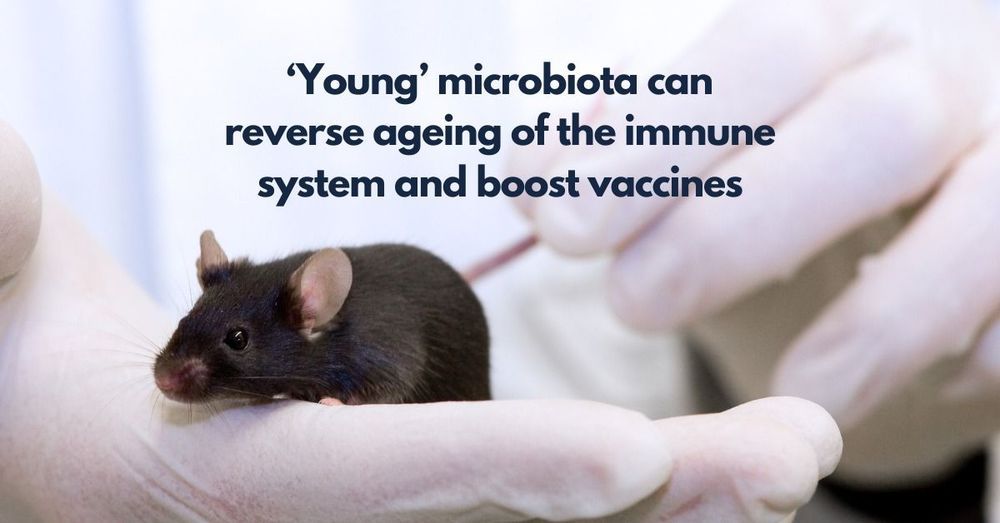Archive for the ‘life extension’ category: Page 298
Oct 5, 2020
High throughput screening identifies molecules that reduce cellular stress
Posted by Kevin Huang in categories: biotech/medical, life extension
For many, getting older can unfortunately mean an increased risk of illness from cardiovascular disease to cancer. University of Michigan scientists are actively researching the biological underpinnings of aging with the aim of developing interventions that could potentially help people live longer, healthier lives.
A new paper in the journal Science Advances describes the discovery of several promising small molecules that appear to reduce cellular stress in mouse skin cells and could lengthen life.
“Cellular stress resistance appears to be a common feature of long-lived organisms, such as invertebrates and mice,” says the paper’s lead author David Lombard, M.D., Ph.D., associate professor of pathology. Lombard is part of a multidisciplinary group at U-M’s Paul F. Glenn Center for Aging. Recent research from colleague and fellow study author Richard Miller, M.D., Ph.D., found several promising drugs, including rapamycin, a cancer drug, and acarbose, a diabetes drug, that extended life in mice.
Oct 4, 2020
WHO’s Decade of Healthy Aging: Country Spotlight
Posted by Ira S. Pastor in categories: biotech/medical, education, life extension, policy, transhumanism
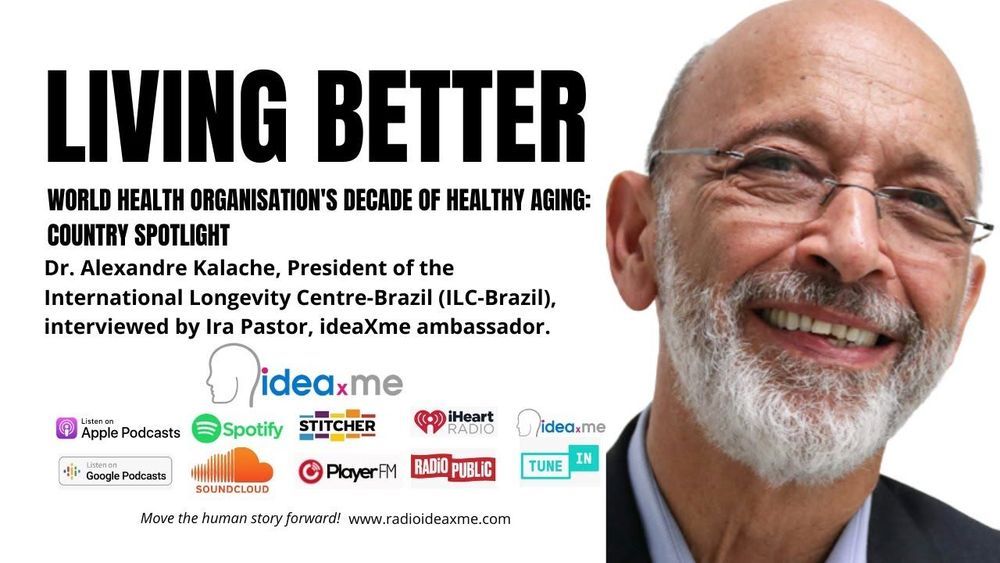
TODAY (Oct 4th) the USTP is holding a special pre-RAADFest Enlightenment Salon at 7 a.m. PST / 10 am EST with Gabor Kiss, CEO of ENVIENTA, to discuss ways to empower contributors to open-source projects and accelerate development of practical transhumanist technologies.
Ira Pastor, ideaXme life sciences ambassador, interviews Dr. Alexandre Kalache, President of the International Longevity Centre-Brazil (ILC-Brazil).
Continue reading “WHO’s Decade of Healthy Aging: Country Spotlight” »
Founder of MakeLoveNotPorn, and internationally famous advertising executive and public speaker, talks of Sex-Tech, a burgeoning trillion dollar industry, on the ideaXme show — #Ideaxme #MoveTheHumanStoryForward #CindyGallop #MakeLoveNotPorn #SexTech #Sexuality #SociallyAcceptableSex #Pornography #Porn #Orgasm #ErectileDysfunction #Biohacking #Viagra #Wellness #Health #Longevity #DisruptAging #Aarp #IfWeRanTheWorld #BartleBogleHegarty #Advertising #PublicRelations #TEDTalk #IraPastor #Bioquark #Regenerage AARP Disrupt Aging.
Oct 3, 2020
The Road to Human 2.0
Posted by Kelly Idehen in categories: 3D printing, biotech/medical, computing, genetics, life extension, nanotechnology, neuroscience, transhumanism
In the coming 2020s, the world of medical science will make some significant breakthroughs. Through brain implants, we will have the capability to restore lost memories.
~ The 2020s will provide us with the computer power to make the first complete human brain simulation. Exponential growth in computation and data will make it possible to form accurate models of every part of the human brain and its 100 billion neurons.
~ The prototype of the human heart was 3D printed in 2019. By the mid- 2020s, customized 3D- printing of major human body organs will become possible. In the coming decades, more and more of the 78 organs in the human body will become printable.
Oct 2, 2020
‘Young’ microbiota can reverse ageing of the immune system and boost vaccines
Posted by John Davies in categories: biotech/medical, life extension
Every human being is home to trillions of microbes that are collectively known as the microbiota. Recent research into how these microbes affect the immune system may explain why older people are more vulnerable to disease and suggest ways to tackle that vulnerability.
Scientists at The University of Edinburgh’s Roslin Institute, led by Professor Neil Mabbott, discovered that as mice get older they showed a marked decrease in the number of M cells found in the lining of the gut. These are specialised cells that look out for infections and trigger the early stages of the immune response. Fewer M cells means a weaker immune system. At the same time, the researchers found that the older mice had depleted microbiota compared to younger mice. The microbiota were less diverse and certain species known to decrease inflammation of the gut in humans were missing.
Oct 2, 2020
Could a poo transplant one day be the secret of eternal youth?
Posted by Kevin Huang in categories: biotech/medical, life extension, neuroscience
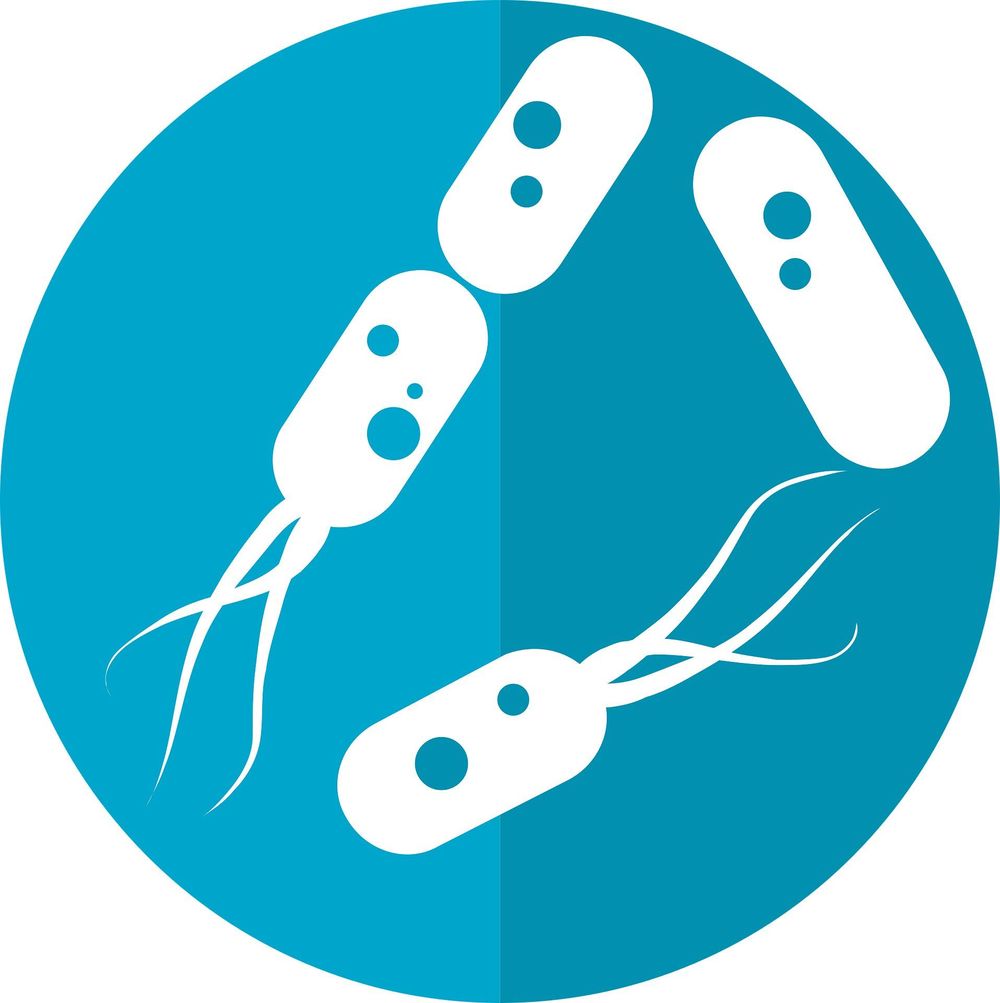
Fecal transplants could one day be used as a therapy to restore cognitive function in the elderly—according to new research from the University of East Anglia, the University of Florence and the Quadram Institute.
A new study published today shows how fecal transplants from older to younger mice altered their gut microbiome, which in turn impacted their spatial learning and memory.
Continue reading “Could a poo transplant one day be the secret of eternal youth?” »
Oct 1, 2020
INTERNATIONAL CONFERENCE OF FUTURE AFRICA: SUSTAINING THE SOURCE. DAY 3 — Longevity
Posted by Ira S. Pastor in categories: education, geopolitics, life extension, lifeboat, transhumanism
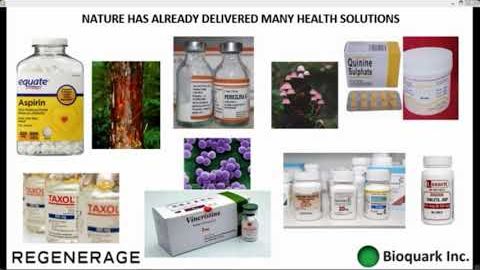
Beyond 2030 with Gennady Stolyarov II of the United States Transhumanist Party: Growing a Mainstream Transhumanist Movement In “2030: Beyond the Film” Direct…Gennady Stolyarov II: Growing a Mainstream Transhumanist Movement.
–
Transdisciplinary Agora for Future Discussions (TAFFD’s) is a global nongovernmental organization registered in the USA that serves as a futuristic think tank endeavored to the education and engagement urgency to help people understand the benefits and challenges of technology applied to high-impact industries and disciplines across the world.
Oct 1, 2020
Crowdsourcing the Cure for Aging | Life Extension Research, Lifespan.IO, and You
Posted by Montie Adkins in categories: biotech/medical, education, life extension
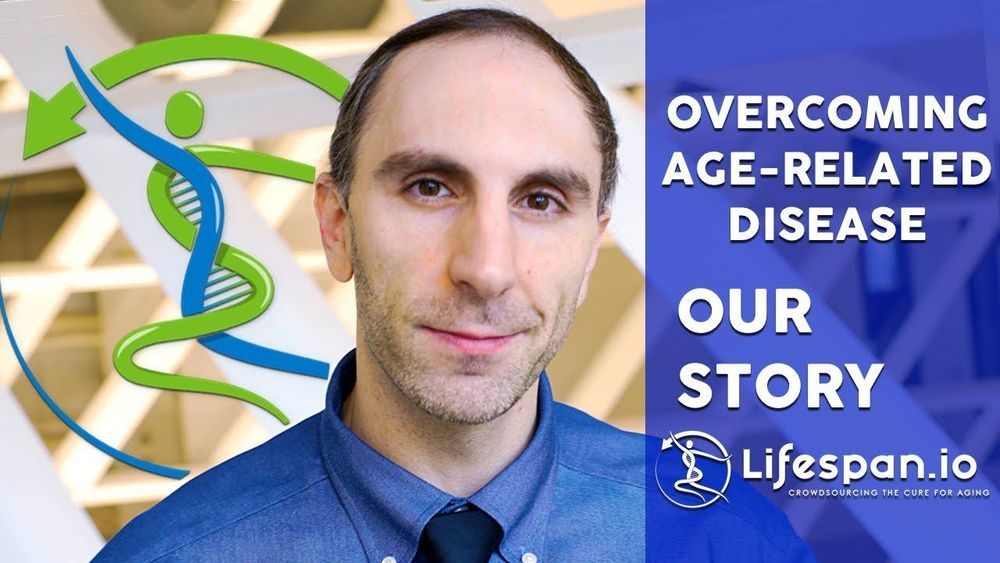
LEAF president Keith Comito explains the story of Lifespan.io — a crowdsourcing platform and community to support biomedical research aimed at extending healthy human lifespan.
▼▼ More info and links below ▼▼
HOW CAN YOU SUPPORT US?
▀▀▀▀▀▀▀▀▀▀▀▀▀▀▀▀▀▀▀▀▀▀▀▀▀▀
LEAF / Lifespan.io is a 501©(3) nonprofit organization. Everything we’ve done thus far and everything we will do in the future is thanks to your support — please stand with us to fight the diseases of aging and increase healthy human lifespan.
Sep 30, 2020
No bones about it: Wild gorillas don’t develop osteoporosis like their human cousins
Posted by Kevin Huang in categories: biotech/medical, life extension
In a study of gorilla skeletons collected in the wild, Johns Hopkins Medicine researchers and their international collaborators report that aging female gorillas do not experience the accelerated bone loss associated with the bone-weakening condition called osteoporosis, as their human counterparts often do. The findings, they say, could offer clues as to how humans evolved with age-related diseases.
The study was published on Sept. 21, 2020, in Philosophical Translations of the Royal Society B.
“Osteoporosis in humans is a really interesting mechanical problem,” says Christopher Ruff, Ph.D., professor at the Center for Functional Anatomy and Evolution at the Johns Hopkins University School of Medicine. “In terms of natural selection, there is no evolutionary advantage in developing bone loss with aging to the point of a potential fracture. By looking at close relatives of humans on the evolutionary tree, we can infer more about the origins of this condition.”




